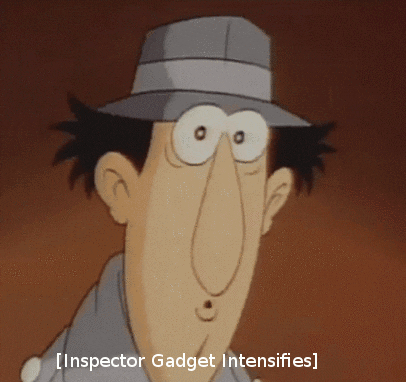5 Red Flags in an Interview Process
5 Things to look out for when interviewing for your next role.
LinkedIn is a weird place.
Since the new year, my feed is full of posts about promotions and new roles as well as news of layoffs, downsizing and folks struggling to find work.
It’s a timely reminder to everyone that an interview process goes both ways.
You, as the candidate, need to put your best foot forward. Be prepared. Practice.
They, as the employer, need to do the exact same thing.
While there are no guarantees in hiring (or interviewing), there are some things that should get your spidey-senses tingling.
If you are interviewing and uncover any of these flags - run.
Or at least, get your inspector hat on because there is more digging to do.
1. Interviewers Asking Illegal Interview Questions
Pretty obvious one to start.
If interviewers are asking illegal questions about personal information like if you have kids, your marital status, sexual orientation etc. it’s not a good sign.
Note: It’s important to know the difference between innocent small talk and fishing for information.
One is likely an in-experienced or naïve interviewer trying to connect on a personal level, the other is someone inappropriately looking to gain information.
If you’re ever in this situation, you can:
Answer the question. If you think the interviewer is simply trying to get to know you and is asking the question naively, you can choose to answer.
Clarify the question. Ask for the interviewer to explain how the question relates to the position you are applying for.
“Can you please rephrase the question? I don't understand the connection to this role.”
Side-step it. You can discreetly refuse to answer the question but address the concerns you believe they are trying to raise.
“My personal life will not interfere with my professional responsibilities.”
Leave the interview. Refuse to answer the question and excuse yourself from the interview.
2. Hiring Manager not knowing what success will look like.
It is your responsibility to carry out your own due diligence (to the best of your ability) to make sure you’re not walking into a dumpster fire of a boss or company.
Every Hiring Manager should be able to offer context and perspective on what success looks like in a role they are hiring for.
They should have an idea on what success looks likes over 3/6/9/12 months, and have a vision for the role or growth after that.
If they can’t offer any insight and don’t know what tangible things a successful person would achieve - how will you know when you start the role?
It’s an example of a hiring manager or team either not knowing, or not taking the time to invest in a plan.
Both are bad news bears.
3. Inconsistencies Across Answers.
One of the big pet peeves I always talk about with my clients is not asking questions to every person you meet in the interview process.
Ask everyone questions to build a picture of the role, team and company in your mind.
Are the answers consistent and insightful, or misaligned and vague?
Good teams have a clear vision of what good looks like.
If the hiring manager describes the role one way and everyone else in the process describes it completely differently, you need to make sure you clarify what the role is before you accept any offers.
4. Other Inconsistencies Across Interviews
Good hiring is a team effort. All interview processes are a window into the company culture and team dynamics.
Ever been in a process that felt like the same interview 5 times?
Ever prepped for a certain type of interview, only to have a totally different conversation?
Interviewed with someone who clearly doesn’t know who you are or what role is you’re applying for?
These are all nods to a disjointed hiring process and lack of communication between stakeholders.
This can be a big flag, especially if coupled with companies/roles with high turnover.
We all have off days (yes, even interviewers) but if every conversation you have is different to what was outlined or doesn’t seem to have much relevance to the role, then it could be a bigger issue.
5. Gotcha Questions
Gotcha questions were made popular by some big tech companies like Google in the early 2010s. At the time it was a new and innovative way to assess problem solving and logical thinking.
Since then, even Google admitted that they were a waste of time and there was no research to suggest they were effective. Mostly they achieved the goal of making the interviewer feel smart.
If you find yourself being asked these type of questions, it highlights outdated or ill-prepared interviewers.
If the core of their interview is based around these questions they aren’t assessing candidates effectively and that will have a negative impact, sooner or later.







